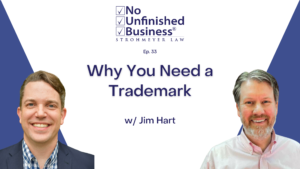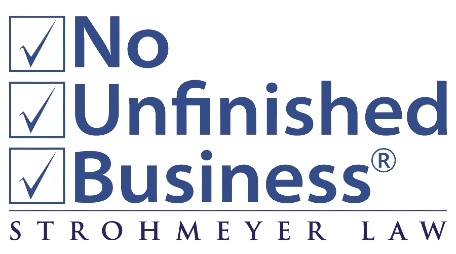Why a Foreign Trust Won’t Reduce Your Income Taxes
Foreign Trusts & Income Taxes
Foreign trusts can get taxpayers into a lot of tax trouble, so I’ll walk you through why this approach can get you in hot water with the IRS.
This started with a news story from the Houston Chronicle about a tax attorney who was indicted on a tax fraud case for assisting a client with setting up a network of foreign trusts and entities to avoid paying income tax. Ultimately, it didn’t work. Foreign trusts can get taxpayers into a lot of tax trouble, so I’ll walk you through why this approach can get you in hot water with the IRS.
Today we’re going to be talking about why a foreign trust won’t reduce your income taxes. Now, I got up this morning and started reading the Houston Chronicle and it turns out there’s a Houston attorney who has been charged with tax fraud for helping one of his clients set up a foreign trust to hide income and wealth. That’s not really a good plan for anybody.
The Background
“Houston attorney charged in $225 million tax fraud.” That is a lot of money. What happened? The Houston attorney was charged with creating offshore entities and foreign bank accounts to help Robert Smith hide $225 million from the IRS.
Now, obviously, this is a bad answer. We shouldn’t be hiding income and grading offshore entities as a way of getting around what you may be owing in tax. That doesn’t mean you can’t create foreign trusts and that doesn’t mean you can’t create foreign entities. But, as I like to tell clients, once we start moving things abroad, things get much more complicated, and the rules aren’t set up to be easy and forgiving.
The IRS has a lot of reporting that it requires once you’ve got an asset abroad, so creating these foreign trusts is going to trigger a lot of tax compliance for you and that’s well before we get to any of the tax benefits. “Carlos Kepke’s indictment on Thursday,” so tax day, surprise, here you go, “follows an October admission by Smith… that he had used offshore entities… to evade taxes for 15 years.”
This is raising eyebrows
This is a problem. Tax planning mechanisms have gotten a bad rap because of this abuse. This is why the IRS goes after it, $225 million is a lot of money. So, Smith has avoided prosecution by cooperating in a case against somebody else. Again, using a web of foreign entities. They tend to be set up in the Caribbean, but they could be almost anywhere.
Smith has agreed to pay $139 million in back taxes, fines, and penalties. Again, that’s a lot of money that was attempted to be hidden, but they found him. And look. From the next line, look in 2000, Kepke created an LLC in Nevis and a trust in Belize to help evade taxes. So, basically, they started creating these trusts and entities abroad.
The problem is this doesn’t really get around a lot of your tax reporting requirements. You’re not really going to hide much of anything from the IRS just by creating this web of off shore entities and trusts. And, then, starting in 2007, Smith paid about a million dollars to Kepke for creating, managing, and maintaining these offshore entities, as well as other services. By 2009, he was being paid a small fee to purge the records.
Again, that’s not a good answer.
Statute of Limitations
So, the other thing to think about is that, normally, in a tax matter, the IRS has three years as a statute of limitations. Basically, three years from the date that you file or the due date. If you file before the due date to come back and take a look at things, that three-year limitation for the IRS to review, things can be turned into an unlimited statute if you are hiding or being fraudulent about your return.
So, this looks like, even though we’re well outside that three year limitation, because it’s 2021 and we’re looking at 2009, the IRS is saying, “Look, we’re going to go back and we’re going to take care of all of this, because there’s probably fraud going on.” So Kepke’s indictment was unveiled on the traditional deadlines. Obviously, this year it’s been pushed back to either May 17 for most of the country or June 12th or 17th for Texas. Commissioner Rettig told senators it would not be outlandish to believe tax cheats are costing the country $1 trillion or more annually in lost revenue.
That’s probably accurate. I know, again, my job as a tax attorney is to assist with managing that, but I’m not here to take things off the books in a way that is not compliant with the law. We’re not coming in and just pulling money off and not telling the IRS about it. That’s not how it’s going to work.
Gotta disclose the income
So, the Nevis-based entity that Smith controlled became a partner or a member of several other bits to funds it received distributions, including carried interest from funds between 2010 and 2014. Ultimately, Smith did not disclose on his income tax return, his true ownership and control. Now, this is going to be the big issue, because part of the way our system is set up is that the IRS has to know what’s going on. So, the 1040, we produce our own returns. We give the information that we have to the IRS. Now, the IRS also has its information that it gets from W2’s 1099s from other taxpayers about your actions. Just because the system is set up as a voluntary system, it doesn’t mean that there is somehow some voluntary nature to the tax system.
Every year you’ve got to file that tax return. You don’t get to opt out of it similarly choosing what you want to return or tell the IRS about doesn’t get you outside of this. You as a US citizen or a US tax resident have to tell the IRS about what’s going on. So, we think about that in a way of we’re going to have to report this.
Let’s make sure we’re presenting the best case to them for whatever your return is going to look like. Now, if we go back to our slides, the first thing we want to think about is how should we be thinking about different types of entities and trust relationships in terms of taxation.
I’m not going to go through all of this, the short version and what you don’t hear him put my head in a different place. So, you can at least take a look at that. Ultimately, individuals, corporations, which reach federal tax status, not an entity type partnerships, and then different types of trusts all have their own different rates of taxpaying the returns they pay.
And when they have to pay those now, it’s important to also remember corporations and partnerships, as well as limited liability companies are state level entities trusts, but are not state level entities. They are treated as separate taxpayers for income tax purposes. So, first things first.
What does a trust get taxed as normally, for Jack DOE our set Laura Grant or donor, if he puts assets into the 2021 DOE trust? The trustee is going to be there to own and operate or own and manage assets. Then, there may be a trust for an individual beneficiary and that distribution to the beneficiary will pick up income tax as it comes out.
Who pays the IRS?
Ultimately, we’re going to have to get money from income over to the IRS. What are our options? Standard option is first a complex and simple trust. That means that the trustee is going to be paying income tax on income generated within the trust. But, to the extent that income is distributed out to a beneficiary, then the beneficiary’s going to pick up that tax.
So, what is the norm here? The trustee income would come into the trust.
If the trustee retains, it pays that money over to the IRS. Now, if the income is instead distributed out to the beneficiary, the beneficiary is responsible for paying any income tax generated on that trust.
So, that’s our standard for trust. This is the kind of the default where we’re treating the trust as a separate taxpayer. And, this can be either a complex or a simple trust. There’s some rules around that, but it’s not important to get into that right now.
Grantor trust
Option number two, a grantor trust. We use this frequently as part of a state tax, a state, and income tax planning, where the donor, the person who’s put assets in the trust remains responsible for paying all of the income tax to the IRS. So, even if income comes into the trust, the trustee is not responsible for paying tax on the distributions to the beneficiaries and are also not carrying out any income tax obligations to the beneficiary, whatever income is generated inside the trust, Jack, as the grantor of the trust for income tax purposes remains on the hook for those taxes. Why do we do this? Jack’s not going to get any beneficial or any distributions from this trust as a beneficiary. But, what he’s allowing to happen is he’s paying tax, which means the trust assets are growing income, tax free.
So, Jack would remain obligated to pay income tax on whatever’s generated within the trust. So, if the trust has a hundred dollars of income, Jack is going to pay the income tax on that, which means the trustee is responsible and, or retains that whole hundred dollars either to grow it later or to distribute out to the beneficiary.
Taxing the beneficiary
A third option is flipping it and saying the beneficiary is going to be taxable on those distributions. We’re gonna flip the script and say no trustee. You to retain everything in the trust. We don’t want you paying any income tax. The grantor doesn’t want to pay tax either, but it may make sense for tax planning to have the beneficiary be the one who’s paying tax on this.
And, we could think about this in a case where the beneficiary may have a lower tax bracket. So, it may make better sense to have the trustee or to have the beneficiary pick up that income tax. So, three options. What does this mean in the context of a foreign trust? Most foreign trusts are set up to benefit the person who set them up.
Typically, when they’re trying to shelter income and assets like this, there are a lot of things going on. But, my guess is that when they set up the rules. The rules were set up in such a way that when you’ve got a foreign trust and, especially, if you’ve got a trust that set up for your own benefit, a lot of times the owner, the grantor, the donor, or the person who’s put assets into the trust, remains liable for all of the income tax that was generated within that trust. So, just by putting it into the trust, it doesn’t remove this as a tax obligation for the beneficiary. The problem is you’re going to hear, and I’ve seen articles online that say, “Just go ahead and put all your assets into a foreign trust because if you put your assets into a foreign trust, then you’re not responsible for it.”
The trustee pays for it. That can work, but the beneficiary better not be you because if you’re still the beneficiary, you’re not going to get any tax benefit from it. What you’re going to get a lot of obligations to report in and tell the IRS about what you’re doing and why you’re doing it abroad through this foreign trust.
You’re not going to pick up any serious tax benefits. You’re not going to defer any income. Really. It’s going to set things up in such a way that it really is far more complicated for you. So, to wrap it all together here in Houston, we’ve recently had somebody, a tax lawyer, who assisted a client by putting together an offshore structure of trust and entities to avoid income tax. The result, though, was that they did not avoid any income tax.
In summary
While I haven’t looked at things and don’t know what that actual structure is, the law generally sets up foreign trusts for the benefit of the person who set up that trust. They still pick up all the income tax on what was happening, so it doesn’t matter what complex web you’ve set up. You’re almost certainly still responsible for all the income that was generated in there. So, long story short. Just creating a foreign trust will not help you reduce your income taxes. If somebody is telling you that you can set set up a trust and avoid income tax while remaining a citizen or resident in the United States, you’re being sold a bill of goods that’s not going to deliver. When I think about this for clients, we have a lot of obligations and other tax compliance headaches that are going to come up with setting up this foreign trust. So, we’re not going to do this.
End-of-Year Strategies for Irrevocable Gifting Trusts
As the year draws to a close, there are some crucial actions to take with an irrevocable gifting trust.
What to Do If You Receive an IRS Letter
Receiving a letter from the IRS might send shivers down your spine. So what's your first step? Is it always a cause for alarm? Let's walk through what you should do.
Why You Need a Trademark
We'll explain the the four main areas of intellectual property for business owners, why trademarks are crucial, and how to get your marks registered.





